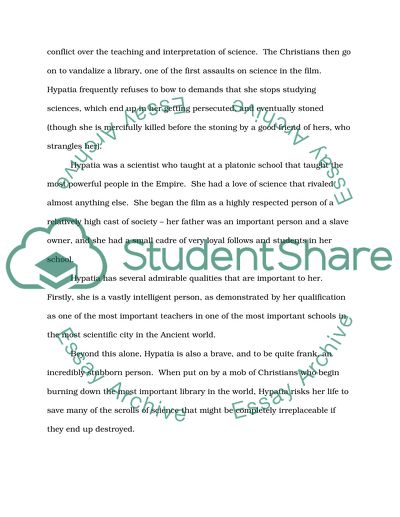Cite this document
(“Agora film review Research Paper Example | Topics and Well Written Essays - 1500 words”, n.d.)
Agora film review Research Paper Example | Topics and Well Written Essays - 1500 words. Retrieved from https://studentshare.org/history/1445629-agora-film-review
Agora film review Research Paper Example | Topics and Well Written Essays - 1500 words. Retrieved from https://studentshare.org/history/1445629-agora-film-review
(Agora Film Review Research Paper Example | Topics and Well Written Essays - 1500 Words)
Agora Film Review Research Paper Example | Topics and Well Written Essays - 1500 Words. https://studentshare.org/history/1445629-agora-film-review.
Agora Film Review Research Paper Example | Topics and Well Written Essays - 1500 Words. https://studentshare.org/history/1445629-agora-film-review.
“Agora Film Review Research Paper Example | Topics and Well Written Essays - 1500 Words”, n.d. https://studentshare.org/history/1445629-agora-film-review.


